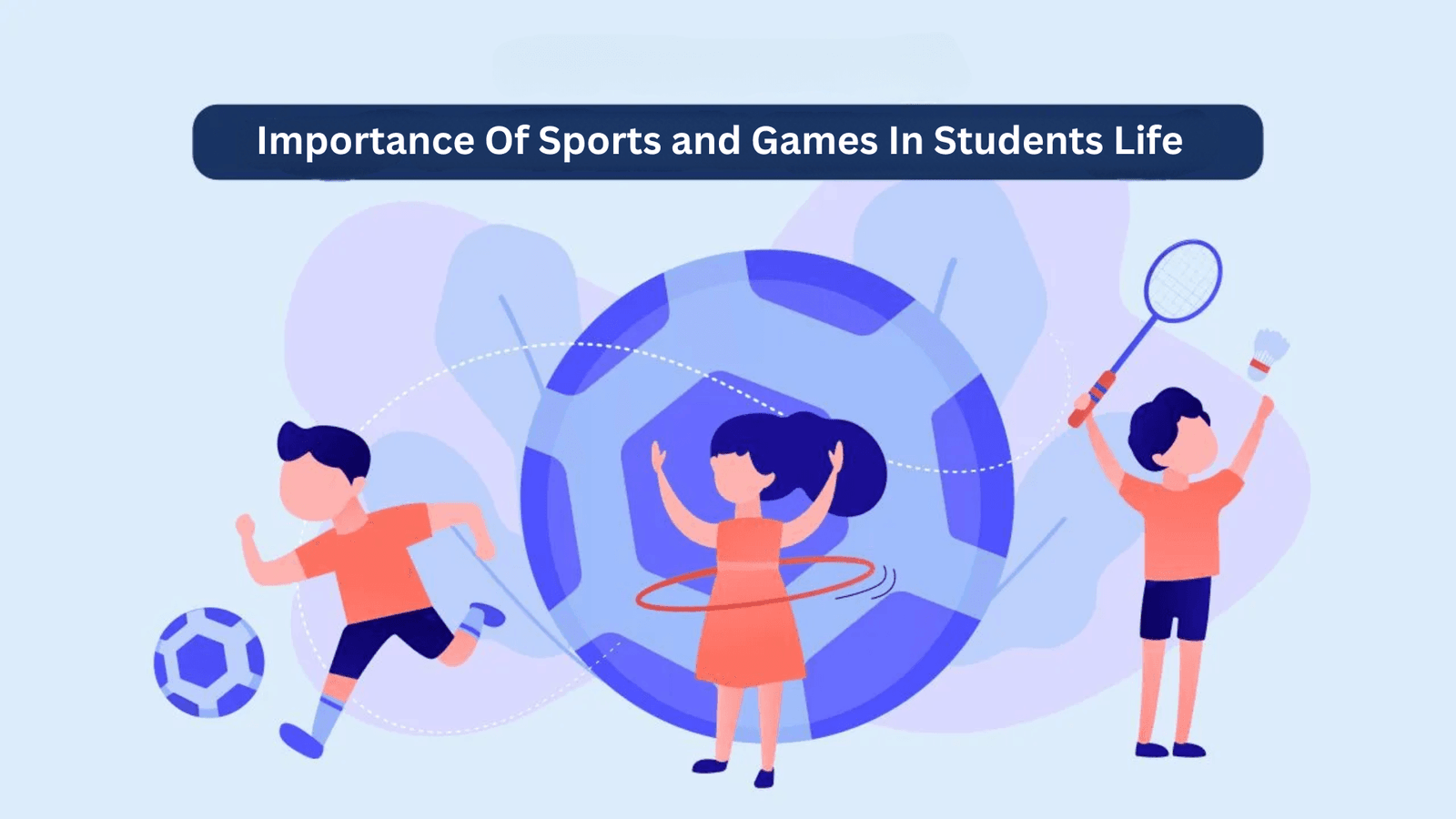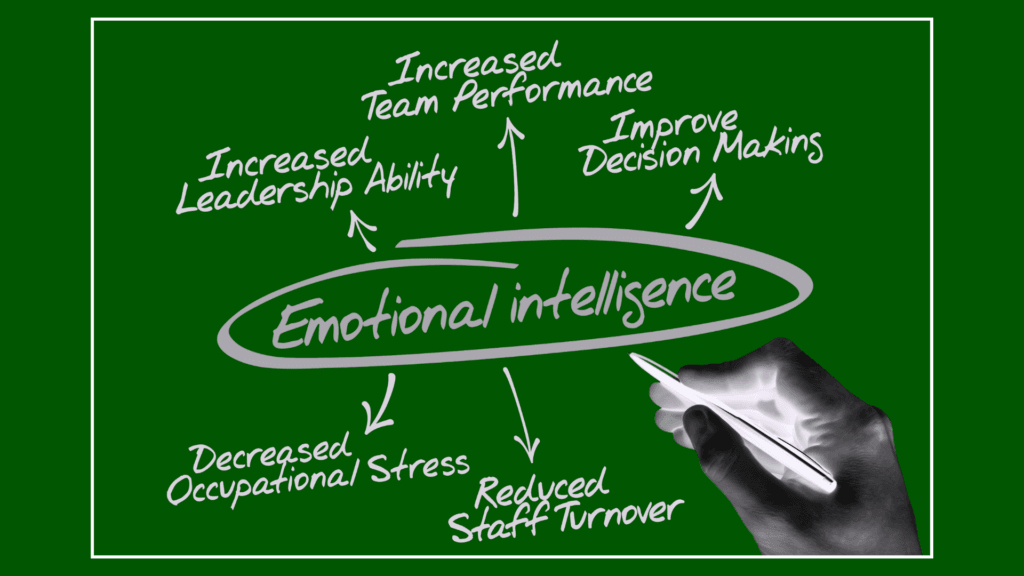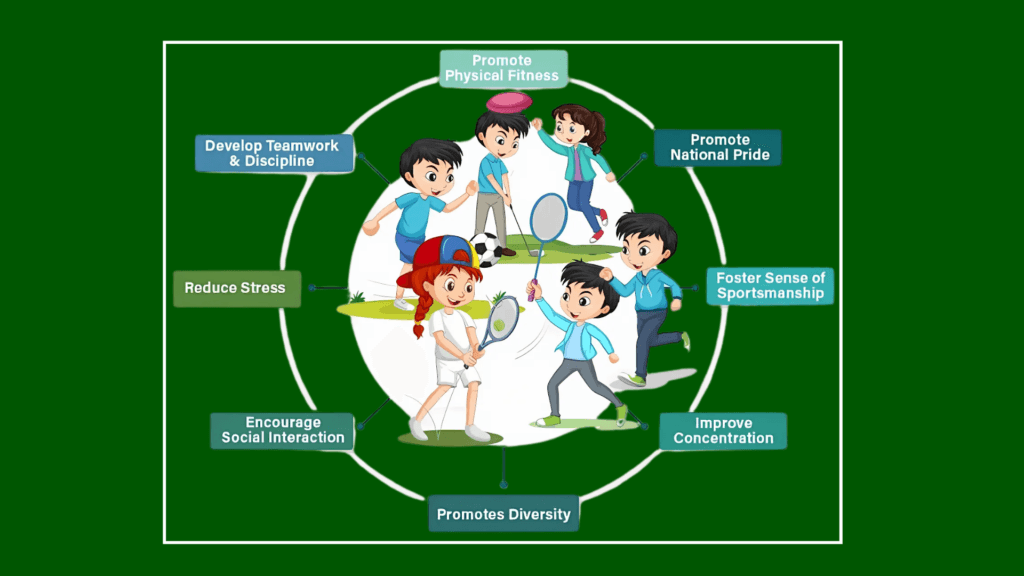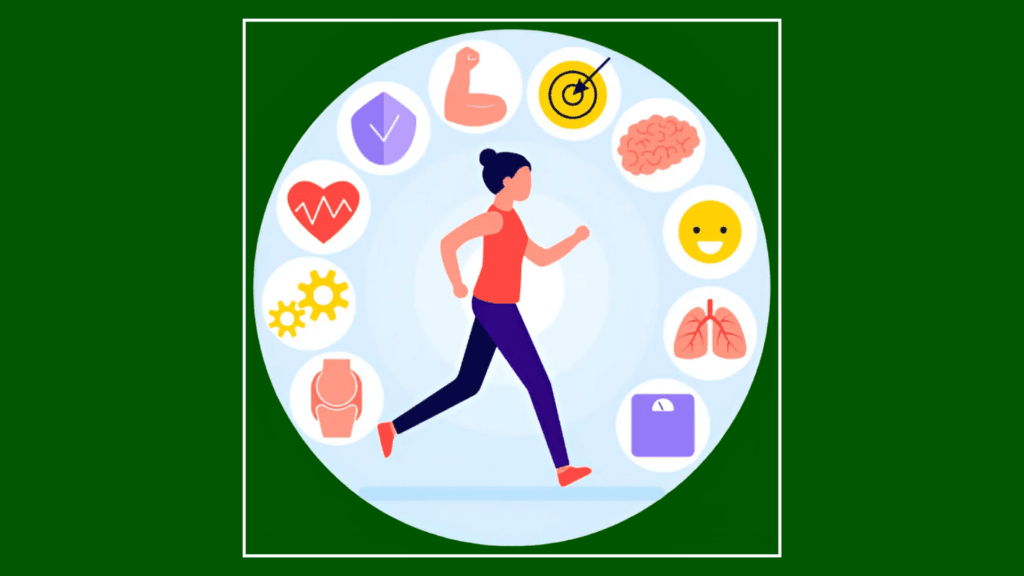
Introduction: Sports and Games In Students Life will provide a great ground for developing emotional intelligence. Teamwork and experience in competitive situations, together with the necessity for good communication, support students in identifying their own emotions as well as others, thus making them more empathetic, resilient, and better able to cope with relationships.
Why are Sports and Games In Students Life is Important?

Sports is central to the lives of students. Such engagements promote physical fitness, nourish good mental health, and improve social skills.
Involvement in sports helps develop teamwork, discipline, and other leadership traits necessary for a healthy lifestyle. Moreover, a sporty student improves his or her academic performance by boosting concentration and cognitive abilities.
Benefits of Sports for Mental Health

It is well known that engaging in sporting activities enhances mental health. Exercises release endorphins, which are hormones found to be promoting a good mood and also to reduce stress.
Participating in sports can help students manage their anxiety, despair, and other emotional challenges by making them feel better over time.
| Reduces Stress | Sports increase endorphin production, reducing stress and improving mood. |
| Boosts Self-Esteem | Achieving personal or team goals in sports can significantly enhance self-confidence. |
| Improves Mood | Physical activity is linked to decreased anxiety and depression, leading to a better mood. |
| Enhances Social Connections | Team sports help build relationships, fostering a sense of belonging and community. |
| Promotes Healthy Coping | Sports offer healthy coping mechanisms, assisting in dealing with life’s challenges. |
| Increases Focus and Concentration | Regular sports participation enhances cognitive function, improving focus and concentration. |
More on the positive side: Because doing sports releases endorphins, which improve emotion and make you feel happier overall, it helps lower stress.
Improved Mood: Regular exercise has been proven directly related to lower symptoms of anxiety and depression and in improving emotional well-being.
Enhanced Cognitive Function: Sports can improve their concentration and cognitive functions, including memory, enhancing their mental aptitude at school.
Social Interaction: They actually build a sense of community and healthy relationship, which is comparable to the value of human attachment and improves mental health by reducing feelings of isolation and depression.
The Importance of Games and Sports in Developing Emotional Intelligence

Sports offer an excellent venue wherein emotional intelligence can be cultivated.
Experience through teamwork and competition, coupled with the necessity for good communication, encourages students to identify with their emotions as well as those of others, thereby enhancing empathy, resilience, and the capability to navigate interpersonal relationships in the best possible manner.
How Can We Help Future Generations Make the Most of Sports Benefits?

| Promote Inclusivity in Sports | Encouraging participation from all backgrounds, abilities, and genders helps create a supportive sports environment. |
| Provide Access to Facilities | Investing in community sports facilities and programs can make sports more accessible to children and young adults. |
| Foster Positive Role Models | Highlighting athletes who exemplify sportsmanship, teamwork, and perseverance can inspire young people to engage in sports. |
| Educate on Health Benefits | Teaching children and parents about the physical and mental health benefits of sports can motivate them to participate. |
| Encourage Lifelong Involvement | Promoting sports as a lifelong activity rather than just a childhood pastime can instill a culture of healthy living. |
| Support Sports Programs in Schools | Advocating for robust sports programs in schools can help develop athletic skills and promote teamwork from an early age. |
| Organize Community Events | Hosting local sports events, tournaments, and workshops can engage the community and foster a love for sports. |
We can do so, however, to maximize benefits from sports for future generations.
Encourage Participation: Implement sports in schools and the community. All of the students shall have a chance, and there sports to be an opportunity available for the participation of all children.
Provide Infrastructure: Provide schools with proper amenities, along with trainer coaches to facilitate the quality of sports education.
Foster a positive environment: Develop a climate in which sport, team play, and fair play are promoted.
The Importance of Sports in Education

Physical Fitness
Sports help children to be healthy weight, maintain their good cardiovascular health, and well-toned muscles and bones. Physical activity is essential for general physical fitness.
Mental Health
As already mentioned, sports have a great role in mental health through the release of stress and helping in maintaining the balance of a good lifestyle.
Social Skills
Team sports foster teamwork, coordination, and cooperation in solving problems. Students learn to achieve common goals together and build friendships as well as social bonds.
Leadership Development
Most students who participate in sports become leaders at one time or another, whether as team captains or motivating teammates. These opportunities serve to build leadership qualities on and off campus.
Academic Performance
Students who participate in athletics do better academically, according to research.
Physical activity enhances concentration and memory retention. So, the cognitive parts of a student improve, which means better grades.
Personal Growth
Sporting activities help students build self-confidence as well as other forms of confidence.
Completing a physical challenge with the team gives a sense of accomplishment that can be translated to other fields of life.
Importance of Sports in Students’ Lives and Its Impact on Personal Growth

It teaches a student discipline, the use of time correctly, and the art of working hard.
The students learn to set targets and put effort to attain goals-lessons that become very valuable to them when leaving school and entering the world.
Social and Personality Benefits of Playing Sports

Engagement in sports actually brings out one’s social skills such as teamwork, good communication, conflict resolution, and many others.
Participating in sports also shapes a person’s attitude since it develops dedication, humility, and respect for others.
Educational Benefits of Playing Sports

Adding sports to education has many positive aspects in terms of education.
It would enhance concentration: exercise generally results in increased brain function efficiency; students will usually give better attention while executing school work.
Improved Creativity: Sports make sure creative thinking occurs through planning.
Life Skills: This regularity in sports teaches students the most basic life skills of discipline, responsibility, and time management in the appropriate quantities.
Conclusion:
Sports and games form an important part in students’ lives. It benefits many in relation with physical health, mental well-being, social skills development, academic performance, and personal growth.
The upcoming generation would be benefited by promoting sports within education systems and communities.

Leave a Reply